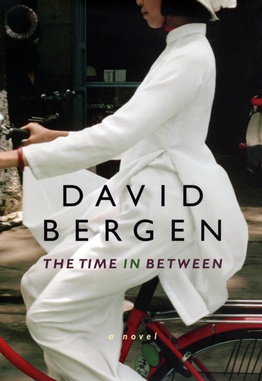
The Time in Between is a novel by Canadian author David Bergen. It deals with a man, who mysteriously returns to Vietnam, where he had been a soldier earlier in his life, followed by his children, who also go to Vietnam to search for him. The novel was the recipient of the Scotiabank Giller Prize and the McNally Robinson Book of the Year Award in 2005.
Bonnie Burnard was a Canadian short story writer and novelist, best known for her 1999 novel, A Good House, which won the Scotiabank Giller Prize.

Lynn Coady is a Canadian novelist and journalist.

Miriam Toews is a Canadian writer and author of nine books, including A Complicated Kindness (2004), All My Puny Sorrows (2014), and Women Talking (2018). She has won a number of literary prizes including the Governor General's Award for Fiction and the Writers' Trust Engel/Findley Award for her body of work. Toews is also a three-time finalist for the Scotiabank Giller Prize and a two-time winner of the Rogers Writers' Trust Fiction Prize.
Richard Bruce Wright was a Canadian novelist. He was known for his break-through 2001 novel Clara Callan, which won three major literary awards in Canada: The Giller Prize, the Trillium Book Award, and the Governor General's Award.
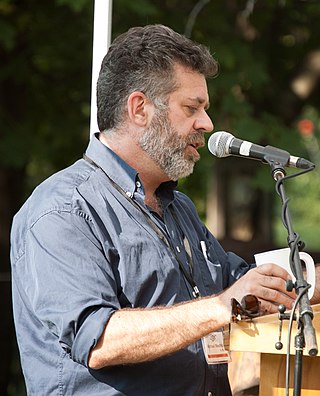
Michael Redhill is an American-born Canadian poet, playwright and novelist. He also writes under the pseudonym Inger Ash Wolfe.
Anita Rau Badami is a Canadian writer of Indian descent.
Dennis Bock is a Canadian novelist and short story writer, lecturer at the University of Toronto, travel writer and book reviewer. His novel Going Home Again was published in Canada by HarperCollins and in the US by Alfred A. Knopf in August 2013. It was shortlisted for the 2013 Scotiabank Giller Prize.
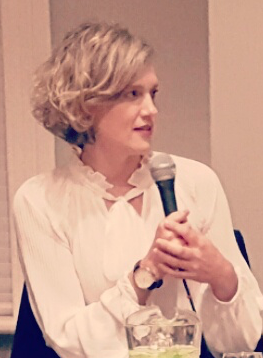
Heather O'Neill is a Canadian novelist, poet, short story writer, screenwriter and journalist, who published her debut novel, Lullabies for Little Criminals, in 2006. The novel was subsequently selected for the 2007 edition of Canada Reads, where it was championed by singer-songwriter John K. Samson. Lullabies won the competition. The book also won the Hugh MacLennan Prize for Fiction and was shortlisted for eight other major awards, including the Orange Prize for Fiction and the Governor General's Award and was longlisted for International Dublin Literary Award.

A Good House is the first novel by Canadian writer Bonnie Burnard, published by Picador in 1999 and later by Henry Holt and Company in United States of America. It was the winner of that year's Scotiabank Giller Prize. The novel narrates the story of a family in three generations, five houses starting from 1949 until 1997.

The Polished Hoe is a novel by Barbadian writer Austin Clarke, published by Thomas Allen Publishers in 2002. It was the winner of the 2002 Scotiabank Giller Prize and the 2003 Commonwealth Writers' Prize for Canada and the Caribbean region and 2003 Trillium Book Award.
Kim Echlin is a Canadian novelist, translator, editor and teacher. She has a PhD in English literature for a thesis about the translation of the Ojibway Nanabush myths. Echlin has worked for CBC Television and several universities. She currently works as a creative writing instructor at the University of Toronto School for Continuing Studies. Her 2009 novel, The Disappeared, featured on the shortlist for the 2009 Scotiabank Giller Prize.

Cordelia Strube, is a Canadian playwright and novelist.

Esi Edugyan is a Canadian novelist. She has twice won the Giller Prize, for her novels Half-Blood Blues (2011) and Washington Black (2018).
Souvankham Thammavongsa is a Laotian Canadian poet and short story writer. In 2019, she won an O. Henry Award for her short story, "Slingshot", which was published in Harper's Magazine, and in 2020 her short story collection How to Pronounce Knife won the Giller Prize.

Us Conductors is a debut novel by Canadian writer Sean Michaels. Published in 2014 by Random House in Canada and Tin House in the United States, the novel is a fictionalized account of the relationship between Léon Theremin, the inventor of the theremin, and Clara Rockmore, the musician regarded as the instrument's first virtuoso player.

The Age of Longing is a 1995 novel by Canadian author Richard B. Wright and published by HarperCollins. The novel was nominated for the 1995 Scotiabank Giller Prize and Governor General's Award in the English-language fiction category.
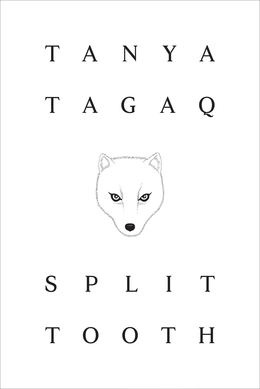
Split Tooth is a 2018 novel by Canadian musician Tanya Tagaq. Based in part on her own personal journals, the book tells the story of a young Inuk woman growing up in the Canadian Arctic in the 1970s.

Zalika Reid-Benta is a Canadian author. Her debut novel River Mumma was a finalist for the 2024 Trillium Book Award and received starred reviews from publications such as Publishers Weekly. It has been listed as one of the best fiction books of 2023 on numerous platforms, including CBC Books. The novel is a "magical realist story" inspired by Jamaican folklore. The main character, Alicia Gale, is a young Black woman having a quarter-life crisis, while adventuring through the streets of Toronto, Ontario.
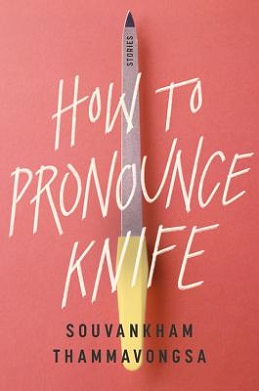
How to Pronounce Knife is a short story collection by Souvankham Thammavongsa, published in 2020 by McClelland & Stewart. The stories in the collection centre principally on the experiences of Laotian Canadian immigrant families, sometimes from the perspective of children observing the world of adults.














